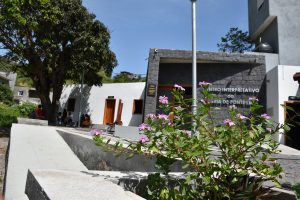
Centro Interpretativo da Olaria de Fonte Lima
O Centro Interpretativo da Olaria de Fonte Lima é um espaço dedicado à preservação e valorização da rica tradição oleira de Cabo Verde, localizado na
Since national independence, which took place in 1975, and despite limited financial resources, the safeguarding and nhancement of Cabo Verde's cultural heritage has been a constant concern within the framework of the country's governance. This concern resulted, among several actions, in the recovery and rehabilitation of the built heritage, in the safeguarding of oral traditions and cultural manifestations and in the collection of movable properties, all over the country.
With regard to movable properties, the collections carried out between 1992 and 1995, on the islands of Santo Antão, Santiago, Fogo and Brava, whose ultimate objective was the creation of the National Museum, a project that did not materialize, stand out, in the meantime having created the Ethnographic Museum of Praia in 1997.

O Centro Interpretativo da Olaria de Fonte Lima é um espaço dedicado à preservação e valorização da rica tradição oleira de Cabo Verde, localizado na
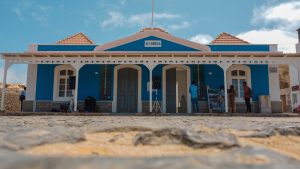
O Museu de Arqueologia da Boa Vista, inaugurado em 08 de junho de 2023, é o resultado final de uma longa jornada de recolha e
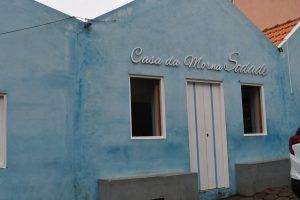
A Casa da Morna Sodade, resulta de uma parceria entre o Município de Tarrafal de São Nicolau e o Ministério da Cultura e das Indústrias Criativas através
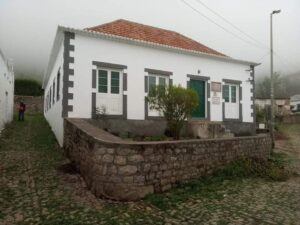
A Casa Museu Eugénio Tavares e Centro de Estudos da Morna é um museu de personalidade, voltado para as temáticas ligadas a figura de Eugénio Tavares, a
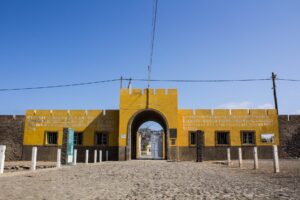
O Museu da Resistência, Ex-Campo de Concentração do Tarrafal, foi inaugurado em 2000, com o objetivo de preservar e perpetuar parte da memória histórica do
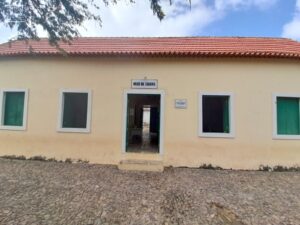
O Museu da Tabanca, que havia sido inaugurado em fevereiro de 2000, no Centro Cultural/Museu da Tabanca na cidade de Assomada, foi transferido em 2010
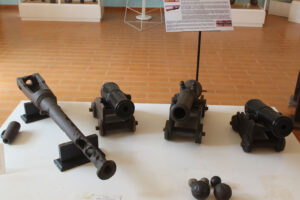
O Museu de Arqueologia, inaugurado a 24 de outubro de 2008, é gerido pelo Ministério da Cultura e Industrias Criativas, através do
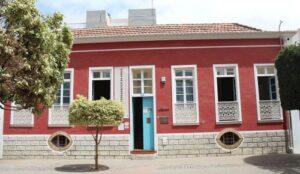
O Museu foi inaugurado no dia 27 de novembro de 1997 para albergar o espólio etnográfico recolhido pelo então Instituto
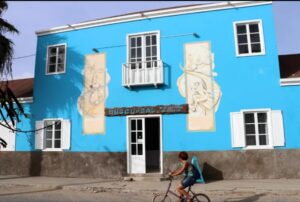
A ideia da criação do museu surge da necessidade de valorização e promoção da memória histórica e cultural da ilha do Sal. O projeto foi desenvolvido e implementado numa parceria entre…
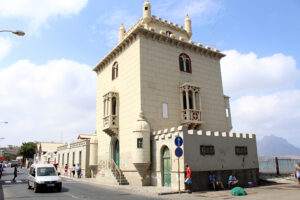
Em 2013 o Instituto do Património Cultural dá início ao projeto de instalação do Museu do Mar no edifício Réplica da Torre de Belém. O processo começou com a recolha…
ler mais
In the exercise of its responsibilities, the Museums Directorate is responsible for:
Cabo Verde currently has 24 museological structures, of which 8 are under the jurisdiction of the Ministry of Culture and Creative Industries and the rest are managed by public and private entities. These address quite diverse themes and are distributed in a balanced way across the different islands.
The 8 museums supervised by the Ministry of Culture and Creative Industries, through the Institute of Cultural Heritage – (IPC) are located on 3 islands:
Ilha de Santiago:
Ilha do Sal
Ilha de São Vicente
Ilha de Boa Vista
Ilha de São Nicolau
The management policy for Museums in Cabo Verde, following the guidelines of the governance programme, has sought their best positioning in the socio-economic and cultural context of the country, aligning them with sustainable development strategies, mainly regarding the tourism, culture and education sectors, assuming a determinant role in safeguarding the national heritage, for the knowledge and appropriation of Cabo Verde's history and cultural identity.
Thus, the Museums of Cabo Verde was designed as a project to enhance the national museological framework through the qualification of museums, modernization and reinforcement of their attractiveness.
It is the institutional and governmental understanding that it is time to formalise national museological activity. It is in this sense that the legal framework for museums is currently being updated, which will define criteria for the operation of museums and the creation of a network to improve the level of cooperation amongs different museums, whether public or private.
ler menus